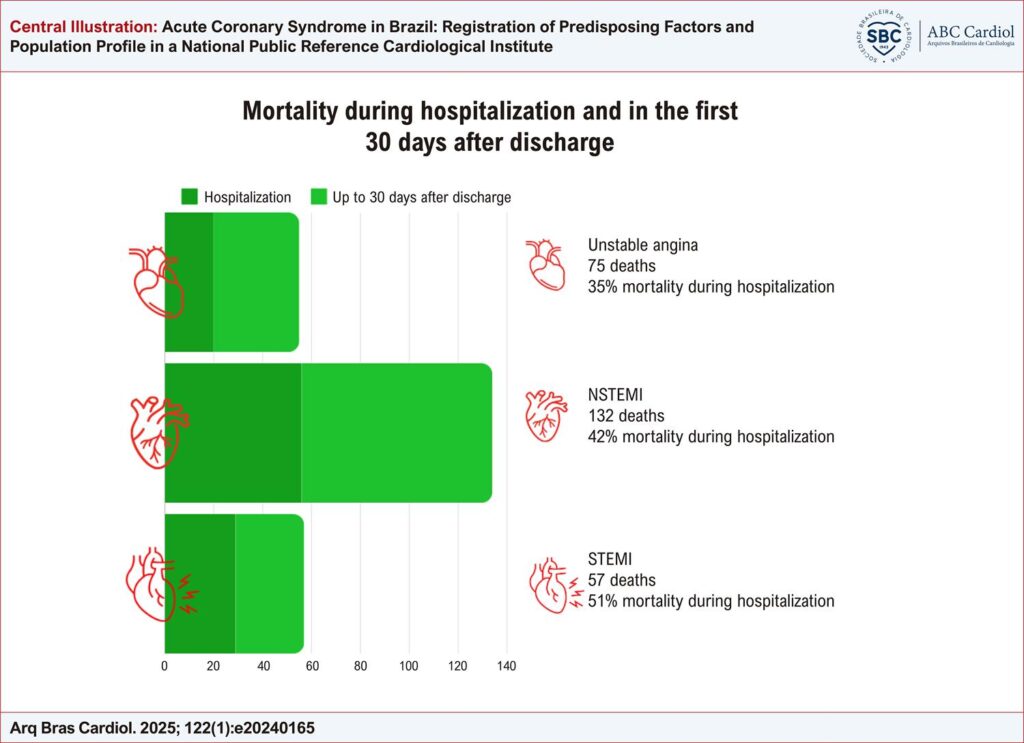Arq. Bras. Cardiol. 2025; 122(1): e20240165
Acute Coronary Syndrome in Brazil: Registration of Predisposing Factors and Population Profile in a National Public Reference Cardiological Institute
Abstract
Background
Acute coronary syndrome (ACS) is one of the leading causes of mortality worldwide. Knowing the predisposing factors is essential for preventing it.
Objectives
To describe the etiological and epidemiological characteristics of the population with ACS admitted to an emergency room in the State of São Paulo.
Methods
The prospective cohort study, based on electronic medical records from a public cardiology institute located in the state of São Paulo, Brazil, describes 5,580 patients hospitalized with ACS between August 2018 and October 2022. The main epidemiological characteristics, the association between confirmed ACS and risk scores, and adverse events during hospitalization and in the 30-day follow-up after hospital discharge were evaluated. The significance level was set at 5%.
Results
The main factors associated with ACS were hypertension (80.38%), obesity or overweight (72.47%), and previous coronary artery disease (CAD) (59.11%). In the GRACE score, 65.10% were considered low risk, while 81.34% in the TIMI and 71.16% in the HEART were identified as moderate risk. Catheterization represented 84.93% of the diagnostic methods. Clinical treatment was the strategy adopted in 46.47% of the cases. In the 30-day evolution, 3.10% presented major bleeding, 7.86% infarction/reinfarction, 5.55% stroke, and 2.53% evolved to death.
Conclusion
The results of the largest Brazilian ACS registry to date highlight the impact of potentially modifiable risk factors on the occurrence of ischemic events in the local population. The findings may contribute to the development of public policies aimed at preventing and controlling the burden of ischemic disease in the country.
2,801

